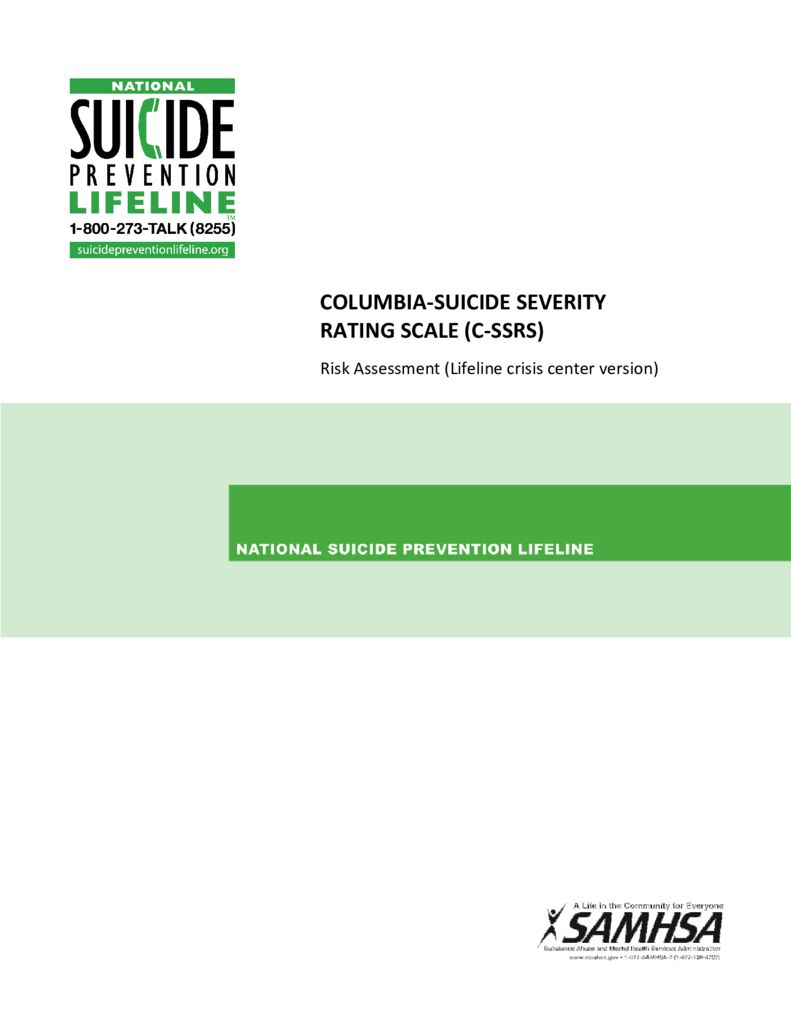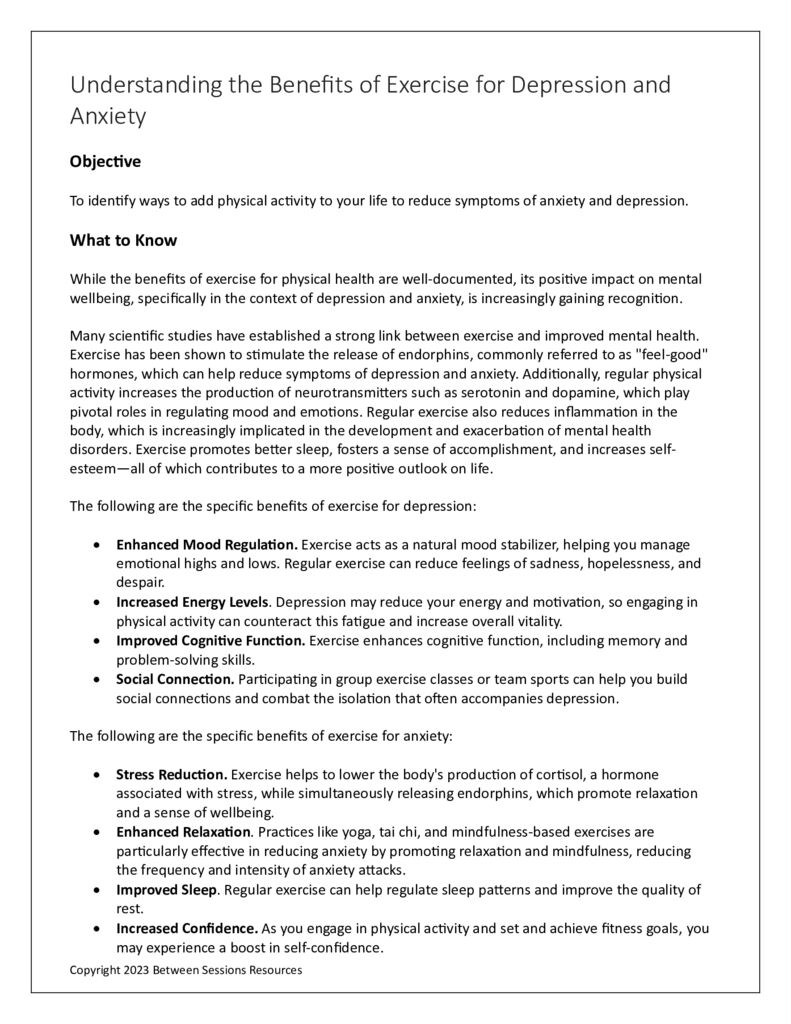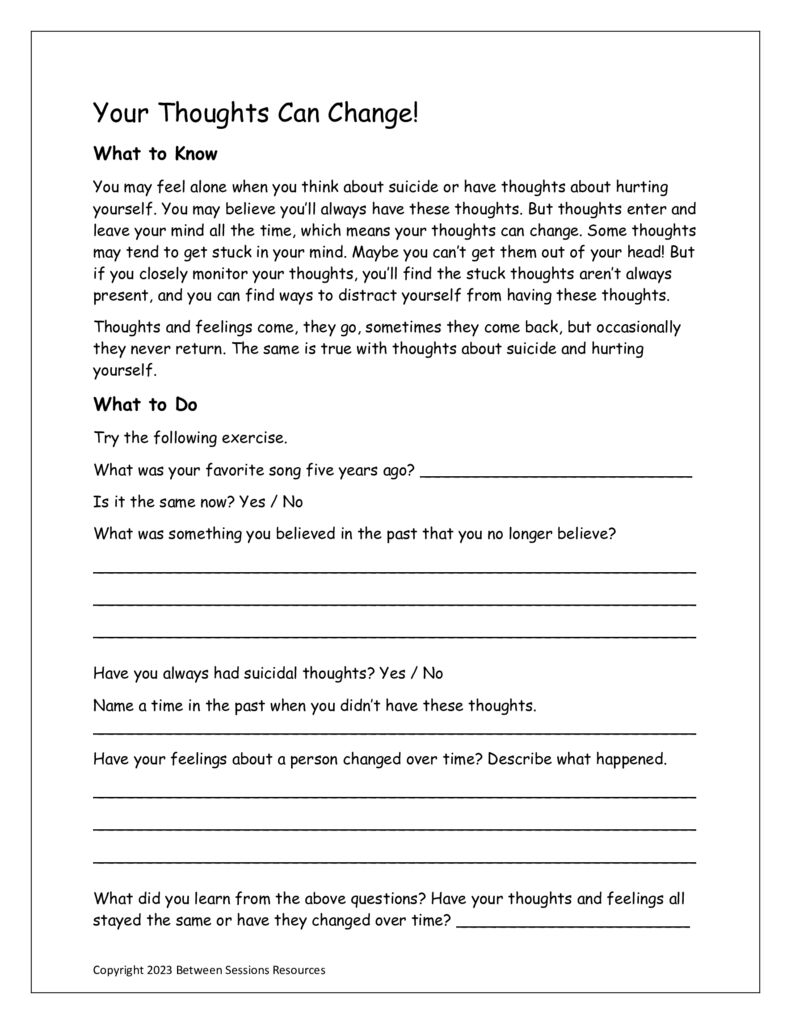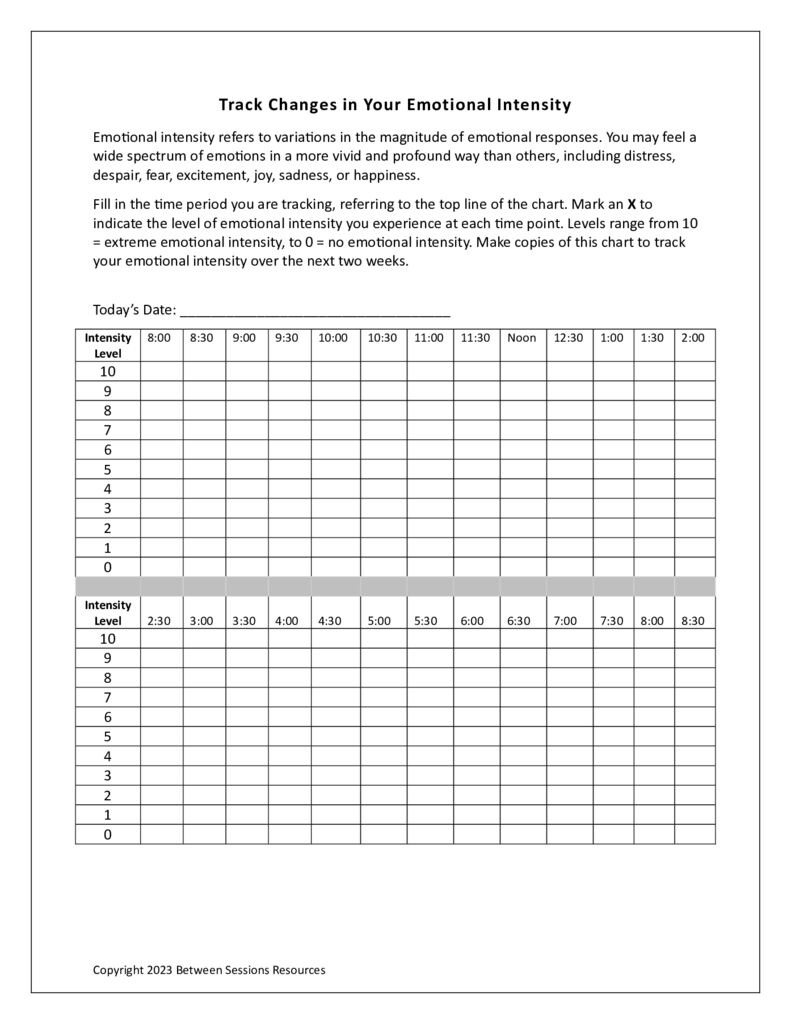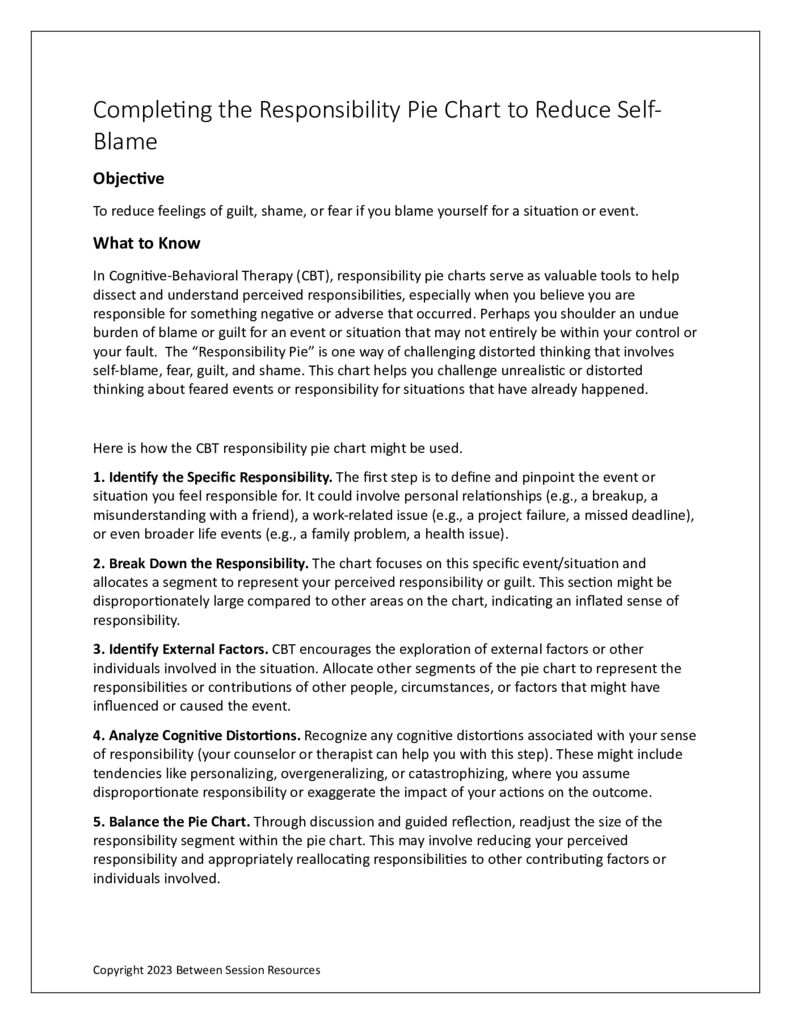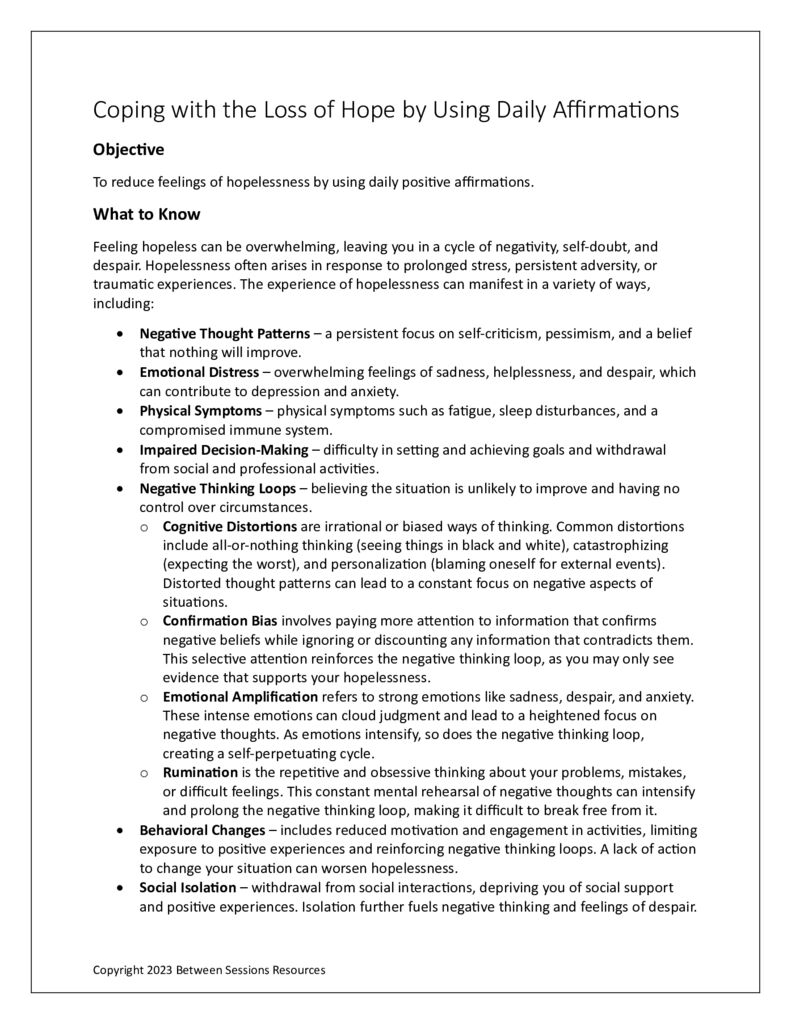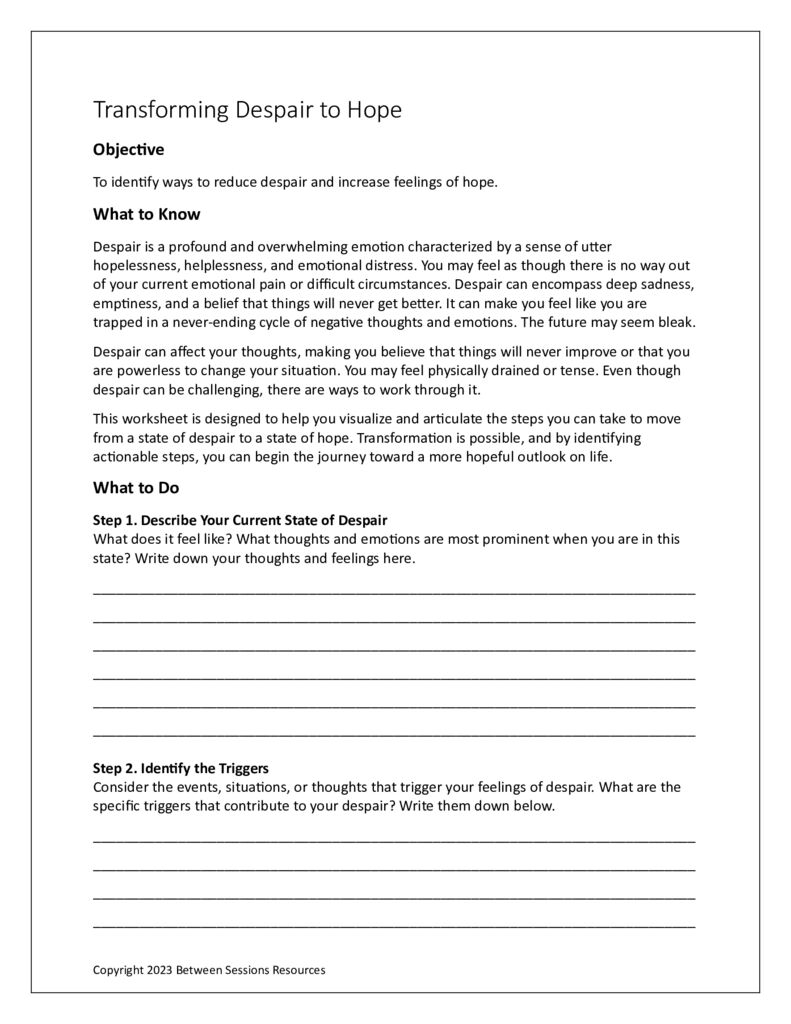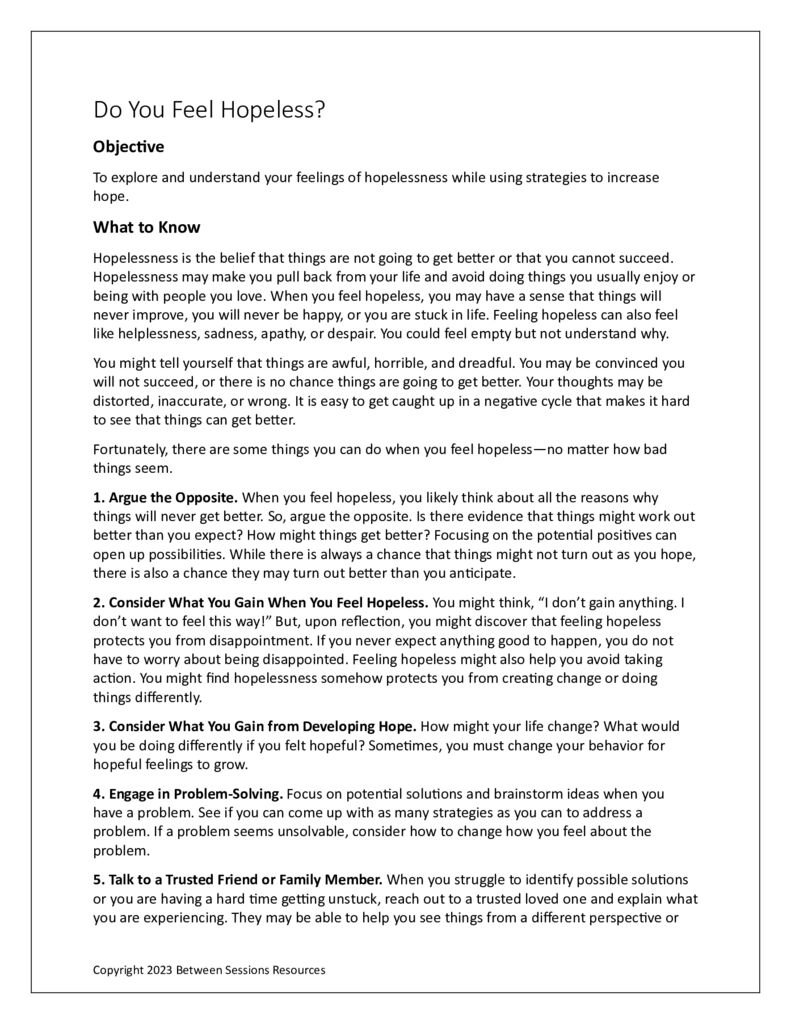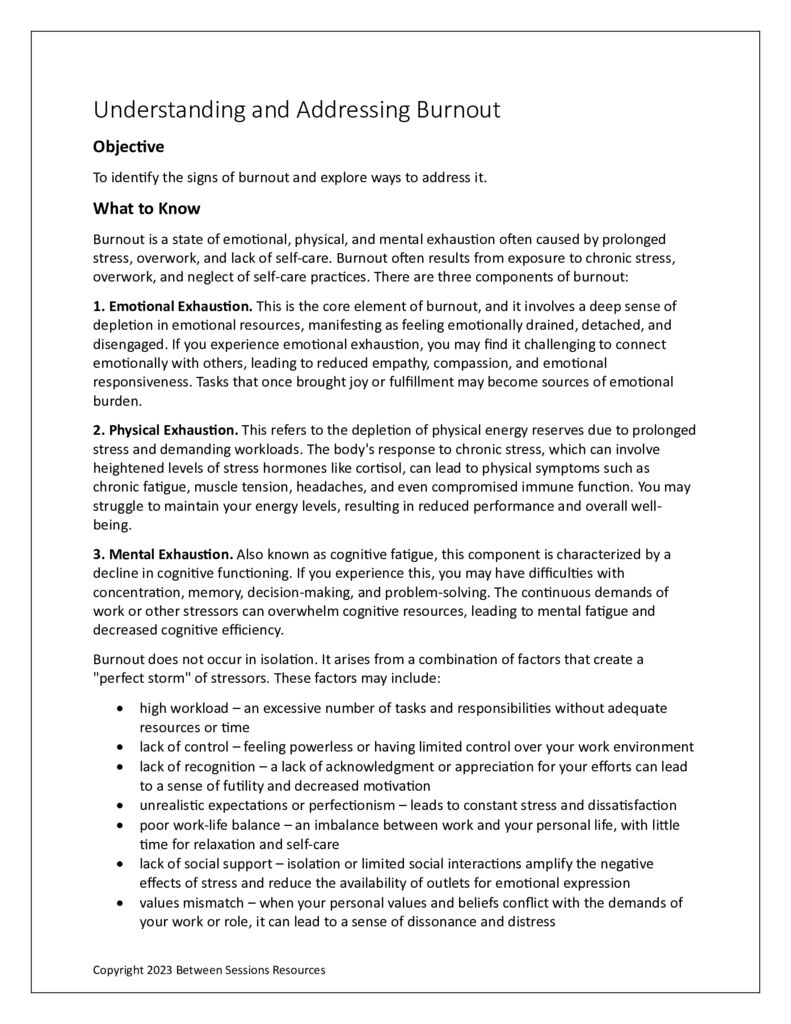This evidence-based scale is part of an international public health initiative involving the assessment of suicidality. Online training in administering the scale is recommended. The scale assesses factors like general clinical status, protective factors, actual attempts, intensity of ideation, and more. (1223, suicide, suicidality, suicide ideation, assessment)
Many scientific studies have established a strong link between exercise and improved mental health. This worksheet specifies the specific mental health benefits that come with regular exercise and guides people on how to start a consistent and sustainable exercise program. (1223, exercise, depression, anxiety, wellness, habits)
This worksheet is for people who are having thoughts about suicide or self-harm. It is designed to provide insight into the nature of these thoughts and help people understand that these thoughts can change over time. (1223, suicide prevention, thought-changing, CBT, cognitive restructuring)
This form is intended to be used by people who have intense often overwhelming emotions, such as anxiety, fear, sadness, or even euphoria. The tracking form will help the therapist teach and monitor emotional regulation skills. (1123. emotional regulation, bipolar, Bipolar Disorder)
In Cognitive-Behavioral Therapy (CBT), responsibility pie charts can serve as valuable tools to help dissect and understand perceived responsibilities, especially when people believe they are responsible for some serious problem or event. This technique asks people to identify and break down responsibility, identify external factors, analyze cognitive distortions, and develop specific coping strategies. (1123, CBT, cognitive restructuring, self-blame, depression)
This worksheet explains how hopelessness can manifest itself in a person’s daily life, including physical symptoms, impaired decision-making, and social isolation. It explains how affirmations can improve resilience, self-compassion, and positivity. The worksheet gives instructions on how to create meaningful affirmations and includes a chart for people to see how affirmations can affect their moods and behaviors. (1023. depression, cognitive restructuring)
Despair is a profound and overwhelming emotion characterized by a sense of utter hopelessness, helplessness, and emotional distress. This worksheet asks people to visualize what “hope” would mean to them, setting small, achievable goals with action steps to begin this journey. It also encourages them to write down self-care activities and ways to expand their support system. (1023, depression, suicidal ideation)
Hopelessness is one of the most serious symptoms of depression. But hope can be regained. This worksheet 7 strategies to regain hope including connecting with others, self-care, engaging in problem-solving, and “arguing the opposite.” (1023, depression, dysthymia)
This worksheet explains the different causes of feelings of “burnout” and provides a checklist that helps people identify the physical, emotional, and behavioral signs that they are being affected by this problem. It goes on to help people identify where their stress is coming from and develop short and long-term goals to address the problems contributing to their burnout. (0823, work stress, family stress, burnout)
This tracking log is designed to help people gain insight into their energy levels and fatigue patterns, providing valuable information for understanding their overall well-being. By monitoring and tracking energy fluctuations throughout the day, people can identify potential factors that may be impacting their mental and physical health. The log can also be useful in treating depression and eating disorders. (0823, eating disorder, depression)

